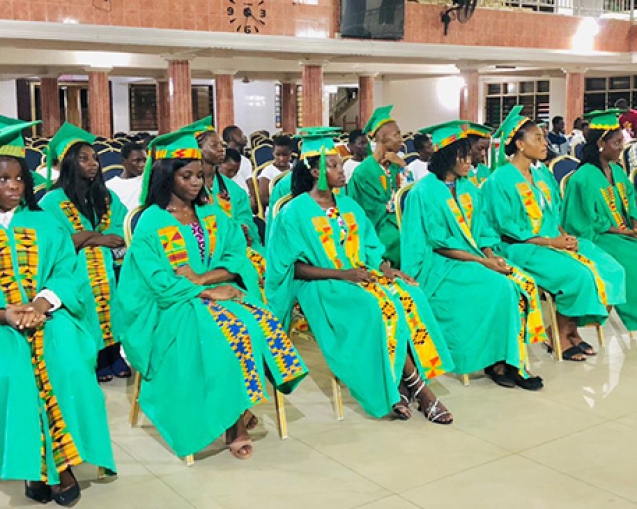MAIN TEXT: ISAIAH 37:14-20 & COLOSSIANS 1:14-15
INTRODUCTION
In anticipation, there was a divine and supernatural shift in ordinance when the formal handwriting of sin and its reproach was negated by the latter, which was written by the blood of Jesus Christ, not with ink, disqualifying the antique written code, unpaid debt, ancient decrees, the law of ordinance, and the commandment of death and sin against all human race being unequivocally blotted out, wiped away, and erased through the vicarious death of Christ who conquered death and sin on the cross.
DEFINITION OF TERMS
WHAT IS AN ORDINANCE?
An ordinance is a Christian rite associated with tangible elements (water, bread, and wine) that is celebrated by the church of Jesus Christ. The term is closely associated with the word sacrament, which is an outward and visible sign of an inward and invisible grace.
WHAT IS THE HANDWRITING OF THE ORDINANCE?
The handwriting of ordinances mentioned in Colossians 2:14 does not refer to the Law of Moses. They claim that since the word ordinances in Colossians 2:14 comes from the Greek word dogma (dog’-mah) it cannot refer to the Law of Moses.
The handwriting of the ordinance, therefore, is simply the written code of sin that was inked against all humanity from the time man fell in the Garden of Eden through disobedience, which was the punishment of death and a lake of fire.
THE CRUX MAIN TEXT – ISAIAH 37: 14-20
DETAILED EXPLANATION OF KING HEZEKIAH’S ACTION
a) Hezekiah departed to the temple of God and in the house of the LORD, and spread the letter before God.
Hezekiah did exactly what any child of God should do with such a letter. In fact, anyone struggling with an ordinance of sin in his life is just to turn to the maker of life who is able to transform and save as well. He took it to the house of the LORD (to the outer courts, not the holy place), and he spread it before the LORD. In this, Hezekiah boldly and effectively fulfilled the later command of 1 Peter 5:7.
b) The LORD of host:
The almighty God is the chief army commander of his people, and so when crises of such sought arose, he was consulted. This title for our God essentially means “LORD of armies.” Hezekiah was in a crisis that was primarily military in nature, so it made sense for him to address the LORD first according to the aspect of God’s nature that was most needful for him.
c) “LORD of armies, send some troops to help us!” God of Israel:
This title was actually used by the King to re-echo to God that the people of Israel were his people.
This title for God also reminded Hezekiah, in our human way of understanding, that the LORD God was the covenant God of Israel and that He should not forsake His people.
c) The One who dwells between the cherubim:
At this point, Hezekiah views God’s greatness in the context of Him dwelling between cherubim who is strong and majestic would not allow Rabshakeh to overcome his people.
d) “You are God, you alone”:
God is a simple title for our LORD, but perhaps the most powerful. If He is God, then what can He do? If He is God, then what is beyond His control? Hezekiah realizes the most fundamental fact of all theology: God is God, and we are not! God is God, and Rabshakeh or the Assyrians are not!
e) “You have made heaven and earth”:
In recognizing the LORD God as Creator, Hezekiah saw that the LORD had all power and all rights over every created thing. We can almost feel Hezekiah’s faith rising as he prayed this.
f) “Incline Your ear, O LORD, and hear; open Your eyes, O LORD, and see”:
In this verse, let me explain with how in Exodus 3:3-4 the crying of the people of God, the Israelites when they were in captivity went up to the Lord and God said I have heard about the cry of my people and I have come down to deliver them.
Hezekiah knew very well that the LORD did in fact hear and see the blasphemies of Rabshakeh. This is a poetic way of asking God to act upon what He has seen and heard, assuming that if God has seen such things, He will certainly act.
HUMANITY AND THE WRITTEN CONTEXT FROM THE BACKDROP OF HEZEKIAH’S KINGSHIP
Humankind had also received a letter of death and destruction from the camp of Satan when from the day Adam sinned against God and have obey the devil. Man was destined to hell and the lake of fire forever and ever but when he took the people of Israel as his nation and they cried unto him which was in alignment of God’s plan for humanity he sent forth his son to remove the handwriting of inscription that was against us and to change the verdict from death to life and hope in everlasting life and power.
LET’S ALSO DEAL WITH THE SECOND TEXT COLOSSIANS 2:13-15
a) “And took it out of the way”:
In Galatians 3:13 we read, “Christ hath redeemed us from the curse of the law, being made a curse for us: for it is written, cursed is every one that hanged on a tree.”
When Christ was impaled or crucified on the cross or “tree,” He was made a curse by taking our sins. The Law was not a curse. But sin due to breaking of God’s Law put a note of debt on our heads. This note of sinful guilt due to following Ways contrary to God’s Law was against us until Christ lifted the curse from us.
The Law was not nailed to the stake or cross Christ was (John 19:17, 18). The record of our sins was nailed to the stake in His body (I Peter 2:24).
Now we all can better understand Colossians 2:14. Notice this verse again as it stands in the King James Version. “Blotting out the handwriting of ordinances that was against us, which was contrary to use, and took it out of the way, nailing it to his cross.”
b) “Sins Blotted Out”:
Let’s now see how the context of Colossians proves how this “handwriting of ordinances” refers to the record of our sins. Colossians 2 explains: “In whom [Christ] also ye are circumcised with the circumcision made without hands, in putting off the body of the sins of the flesh by the circumcision of Christ” (verse 11). Paul elsewhere reveals we are to be circumcised “in the heart.”
c) “And having spoiled principalities and powers, he made a show of them openly, triumphing over them in it”:
For we wrestle not against flesh and blood, but against principalities, against powers, against the rulers of the darkness of this world, against spiritual wickedness in heavenly places. Ephesians 6:12.
What are these principalities, powers, and rulers of the darkness?
But revelation points out that spiritual beings often carry out God’s purpose in the natural world, and not only as messengers. (Exodus 12:23, 2 Samuel 24:16, Ps 91:11, Ps 34:7, Ex 23:20).
Principalities and powers simply describe angelic powers, those invisible, whether they be good or bad. But, in this context, the verse turns dark with the mention of the rulers and the spiritual wickedness in the heavenly places.
But the prince of the kingdom of Persia was withstanding me for twenty-one days; then behold, Michael, one of the chief princes, came to help me, for I had been left there with the kings of Persia. Daniel 10:10-21.
This passage in the whole of scriptures might be the one that speaks most clearly about the invisible powers which rule and influence nations. It speaks about “patron” angels that preside over the destinies of particular nations: a prince of Persia, a prince of Greece, and Michael, a chief prince of Israel.
Then war broke out in heaven. Michael and his angels fought against the dragon, and the dragon and his angels fought back. Revelation 12:7.
So, Israel has a spiritual champion (Dan. 10:21) and there are powers opposed to Israel. These “princes” of the heathen powers will face God and be judged in the future for their deeds as any other created being.
d) “And having spoiled principalities and powers, he made a show of them openly, triumphing over them in it.”
Jesus Christ went to hell on the day he was crucified and made public spectacle of them all and triumphed over them. He destroyed the works he took Satan off his throne and made a showdown of all demons in hell and took away the keys of life and death and resurrected hallelujah.
CONCLUSION
Colossians 2:14 explains that even more. It says that Jesus “canceled out the certificate of debt consisting of decrees against us, and which was hostile to us; and He has taken it out of the way, having nailed it to the cross.” The debt of our sins has been paid by Jesus’ death on the cross.
Written by Overseer Emmanuel Owusu (Mpasaso District – Tepa Area)


















